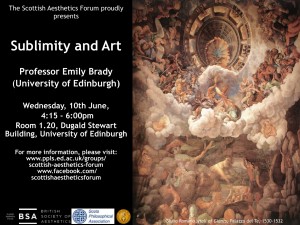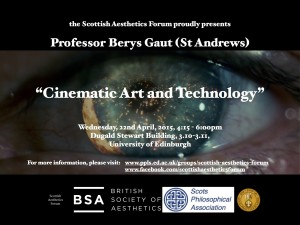Public Lecture by Franz Berto at Royal Society of Edinburgh (13 Feb; Edinburgh)
Professor Franz Berto (Universities of St Andrews and Amsterdam): Public Lecture 4
‘Knowledge via Imagination’
Wednesday 13 February 2019, at 5.30-7.30: Public Lecture 4
Wellcome West Room, Royal Society of Edinburgh, 28 George Street Edinburgh
The human mind can contemplate the strangest unreal scenarios in imagination, from dragons and unicorns to exotic islands or science fictions. Why? What is the evolutionary utility of such mental escapes from reality?
One promising answer is that imagination helps to answer ‘what if?’ questions. What if I try to jump the stream? Will I get to the other side, or will I get hurt? Will a no-deal Brexit make me lose my job? Instead of actually trying a dangerous jump, or waiting for a no-deal Brexit to come, we imagine these events taking place, and try to guess what would happen then.
Empirical research shows that imagination as mental simulation helps us in a number of ways: skiers imagining the path they’ll follow in the ski run perform better in a downhill race. House movers imagining guiding the couch through the living room door can reliably conclude that it will in fact pass through the door.
But how can it be? If imagination is an arbitrary escape from reality, we can imagine whatever we like. How can this give us knowledge about reality, then? Better understanding how imagination as mental simulation works – which traps we are prone to fall into when we use it, when it can give us new, reliably formed and true beliefs – will help us to become better mental simulators, thus better equipped to deal with the uncertainties of the future. This is what this talk is about.
The lecture will be preceded by a brief drinks reception from 5.00-5.30.
Attendance is free and open to all.


